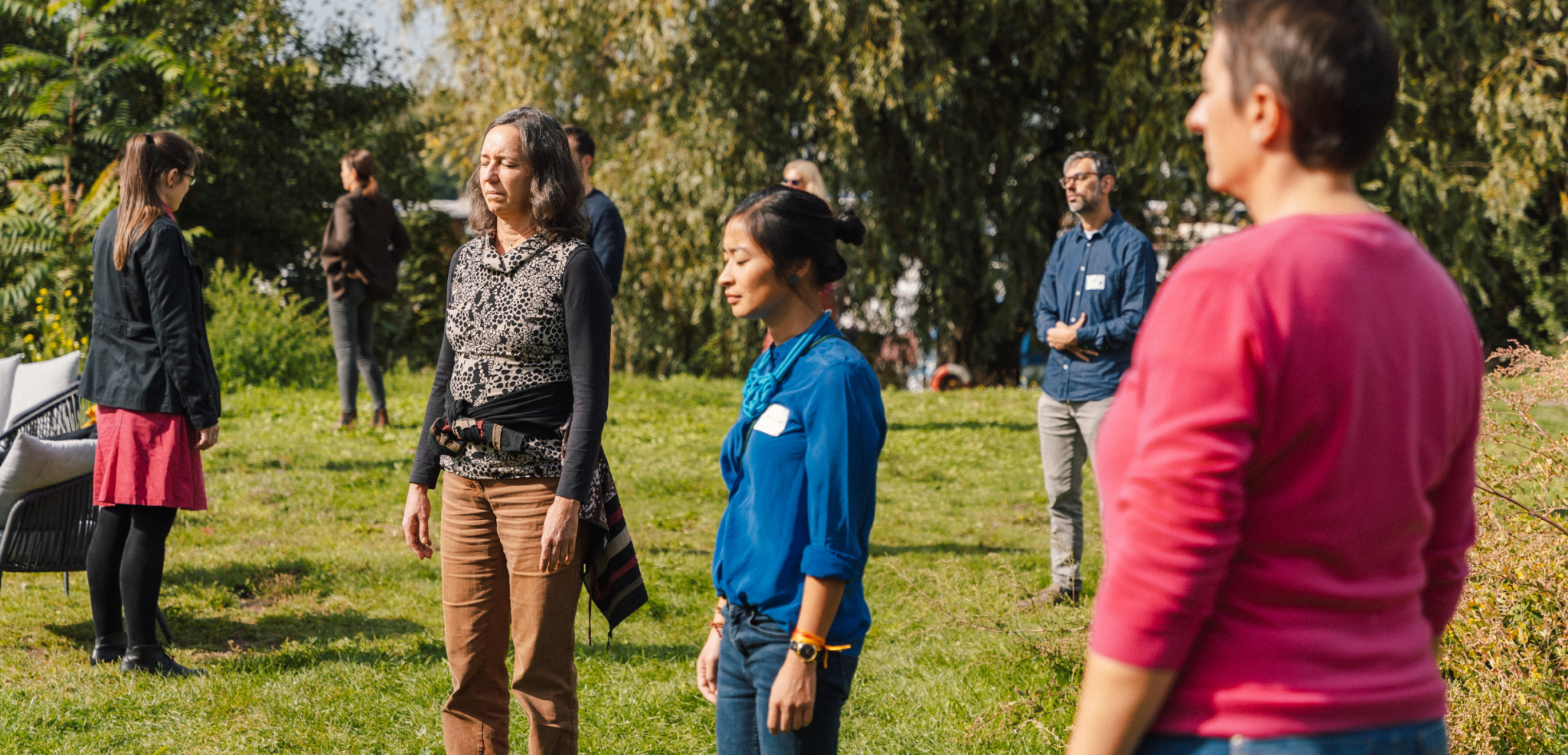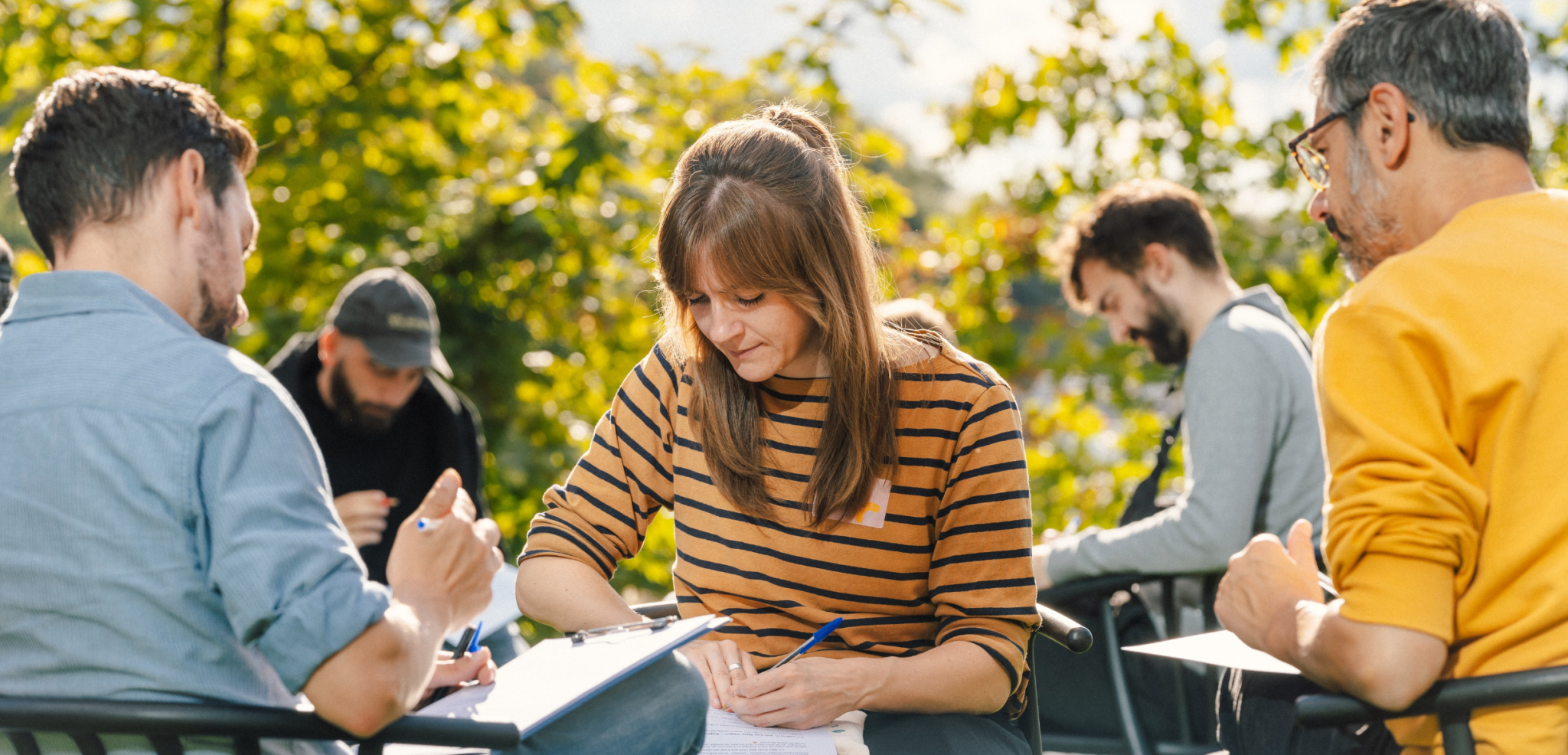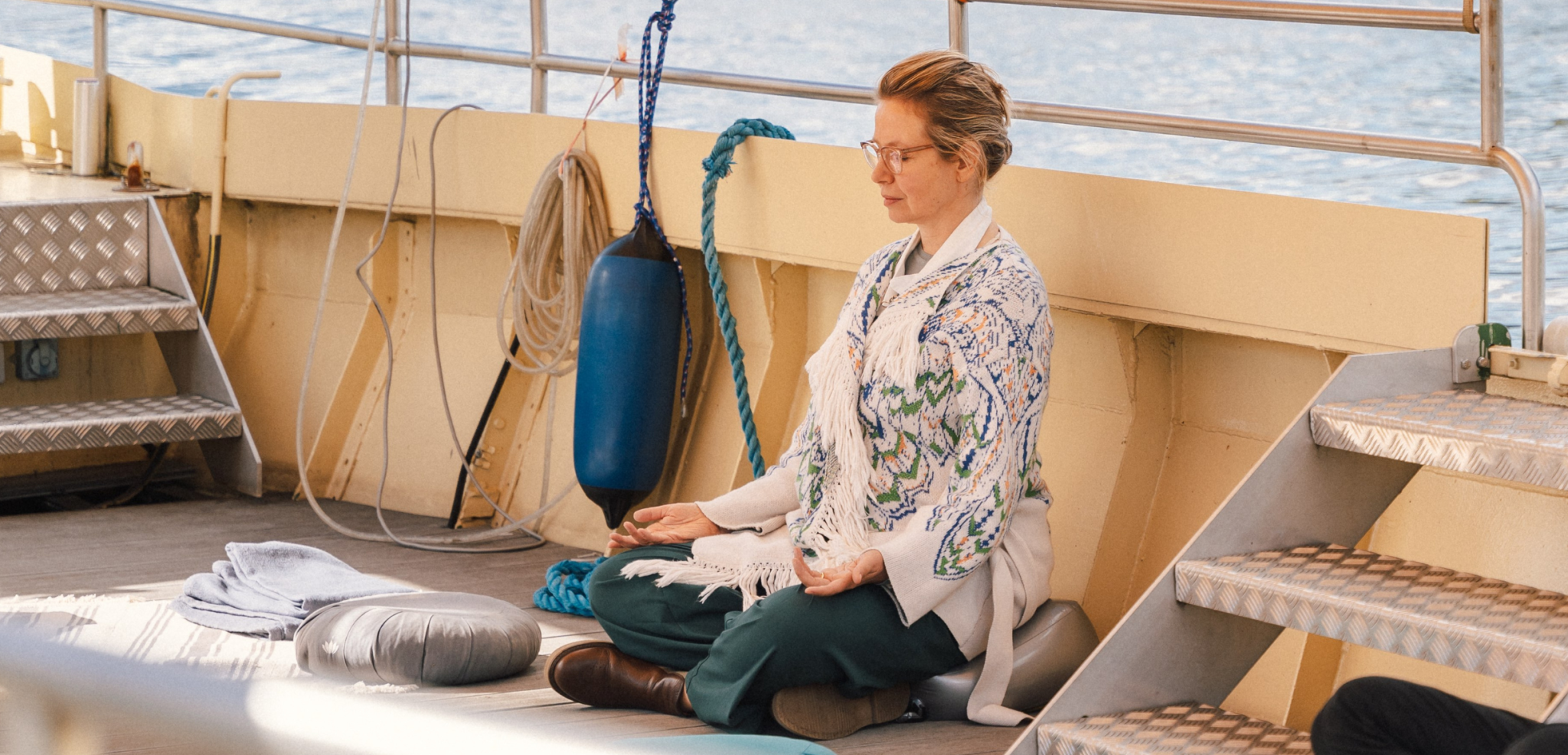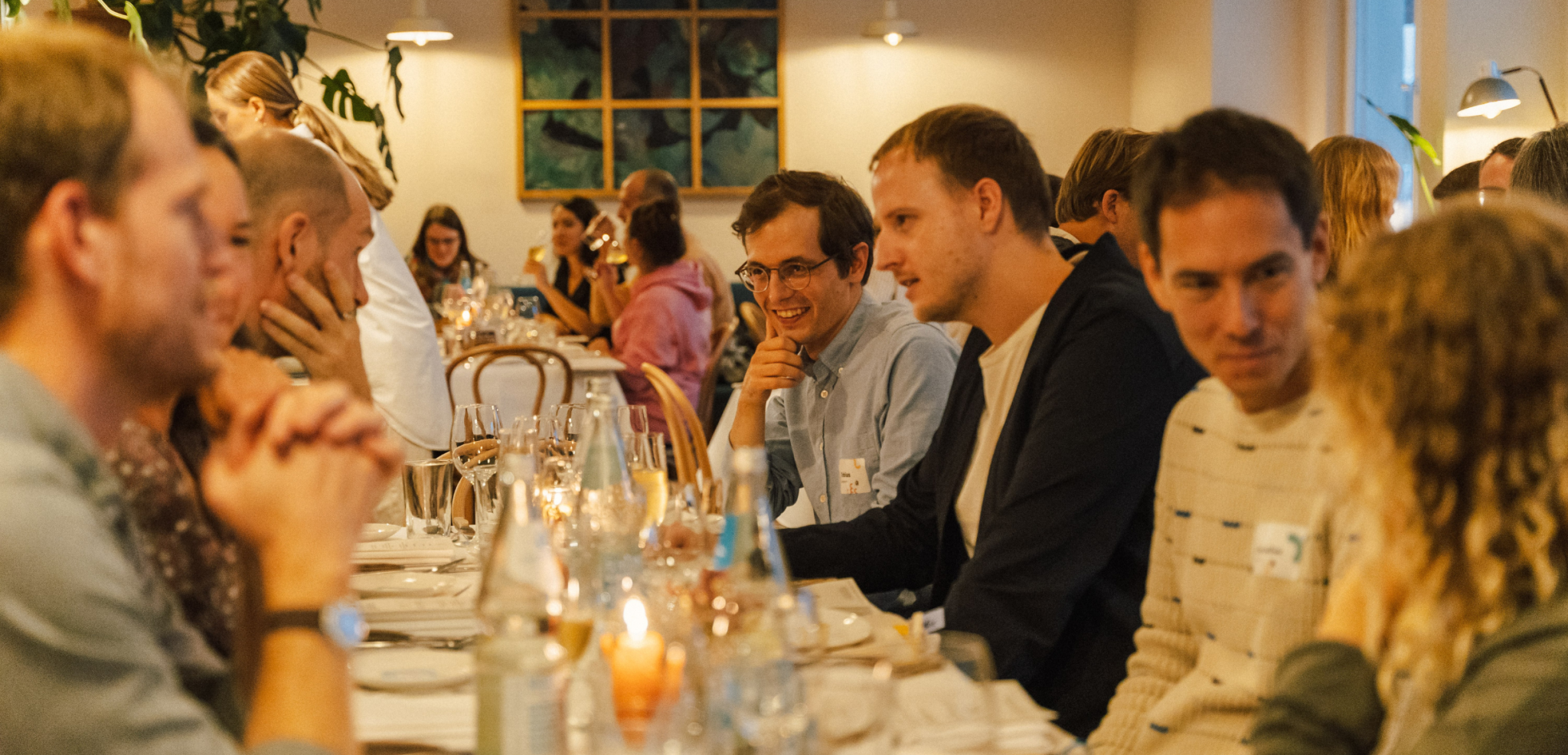
We believe that change thrives through intelligent networking. Strong communities significantly contribute to the responsiveness of teams and organizations and are a crucial component of effective collaboration.
"If your endeavor is grand, unite with others.
"Transformative work requires courage, passion, willpower, and above all, trusting relationships between people," states the manifesto of the very first Loop Fellow Forum, gathering graduates of the Loop Academy.
Events of this nature bring together individuals passionate about a common theme, eager to make an impact in the world. As such, do they also form a community—a group of people connected not only by rational purpose but also by emotional bonds? Communities are built on shared interests, mutual inspiration, and a closeness rooted in common values. Trusting relationships develop through belonging and shared growth.
Belonging means feeling connected to others and being a significant part of a group. It's not just about meetings, spaces, pens, glasses, team-building activities, or a tote bag filled with gifts. It's often an illusion to believe that a meticulously planned and beautifully decorated event alone can evoke genuine feelings and foster true connection. Emotions cannot be scheduled on a to-do list. A community arises from the people who comprise it.
To implement our plan for a multi-day gathering, we send out invitations nine months in advance for the pioneering project, Loop Fellow Forum—without specific answers, but with many questions: Which location sets the right mood for you? What interests you, and what events do you envision in your mind's eye? In a strong community, everyone contributes what they can because together we are smarter.
Many people attend events as consuming participants, eager to experience something exciting: listening, gaining new knowledge, enjoying good food, and meeting individuals who might be relevant to their own path. Event management organizes the logistics and takes care of the rest.
In strong communities, boundaries blur and ideas flow between organizers and participants. Members of a community are not merely responding to an invitation to attend an event; they are integral contributors to its creation. They are explicitly encouraged to co-create and shape the heart of the gathering at any time.
It's a demanding commitment grounded in principles, identity, rules, and values. Communities achieve a balance between meticulous pre-organization and collaborative development with their members.
After gathering numerous responses and new questions, we realize: Together, we are shaping an exchange platform that feels like a friendly garden party, structured with clear agenda items. The challenge lies in identifying which members wish to actively contribute and how to engage everyone in the exchange. Formats, roles, and connections emerge, with a focus on people rather than things or contributions.

Do participants and contributors truly know why they are invited? An event serves as a resonance space for experiences, inspiration, and exchange. Let's be honest: Do we primarily attend communal gatherings for the content? When asked about their reasons for attending a meetup, participants often say, "I'm interested in the topic and I meet like-minded people." However, if we ask them afterward about their best experience at community-building events, the answers usually don't focus on the content. Instead, they highlight the atmosphere, building relationships, self-discovery, emotions, and the unconditional support without personal agenda.
These resonances cannot be planned either. Yet, with a bit more heart than head, we can shape the atmosphere and emotions. One approach is to first connect as human beings and then strengthen our connection through the content.

Experiencing a true sense of belonging requires the assurance of being accepted in a community just as one is: a person with diverse nuances.
Spend most of your preparation time with community members! There's plenty of literature on how to make friends (smile, be kind, listen, be honest, use their name). There's no shortage of wisdom on how to behave in communities. A favorite: Show genuine interest. But let's set the imperative aside: What does it mean for events when we actively cultivate belonging?
Experiencing a true sense of belonging requires the assurance of being accepted in a community just as one is: a person with diverse nuances. This should be reflected in event design: Do we understand the different needs of people and curate accordingly? Are newcomers or those not yet part of the community given special consideration? Do participants, as contributors, have everything they need? Are there spaces for regeneration alongside places for interaction? It's worth delving into creative methods. By aligning agendas and conditions with various participant personas, we aim to meet diverse needs. Our favorite tool in the overall process: Asking questions.
"Every participant is personally welcomed at the entrance. Everything we need is on site. The forum is enriched with insights and experiences from Loop practice. Continuous moderation provides orientation to all participants. Needs between us and the location are communicated ongoingly." (Excerpt from the Forums Governance Meeting).
At TheDive, we enjoy working with role-based structures, even for events. Each role serves a purpose and carries one or more responsibilities. In a vibrant community, where the sum is greater than its parts, responsibilities are distributed during collaborative events. This isn't just about sharing organizational tasks; it's about multiplying trust and cohesion. The benefit lies in empowering individuals to unfold their potentials and actively shape the event flow, rather than adhering strictly to a detailed schedule.
In events characterized by participation and active involvement of all participants, a specific group holds the primary responsibility: the hosts. They extend invitations, remain present, and consider it their duty to understand the needs of each participant. Hosts ask questions, make connections, and sense the atmosphere. They act with equality, making no distinction between invited guests and service providers. Hosts maintain the space and adhere to important timings. They hint at surprises and keep secrets. Sometimes, they indulge in whimsy if it serves the purpose of the event. Importantly, hosts don't cease their efforts just because the event seems to be running smoothly. Similar to hosting a dinner for friends, this role demands continuous special attention to the guests. Facilitating interactions with keen senses is not merely a characteristic but an active behavior.

Encountering each other as individuals and exchanging content require different formats. Strong communities consciously use relational spaces to build and nurture interpersonal relationships. We kick off the forum's eve with a dinner, setting the tone without a fixed agenda and allowing ample time for mingling. Throughout the forum, we use small group check-ins to facilitate intentional moments of connection.
These moments help shift focus during content discussions towards exchanging experiences, information, and knowledge.
What participants take home? Small attentions and special gestures improve every event experience. They show: We value your participation in this meeting. This recognition is conventionally expressed through goodie bags and gifts. But what does it really need?
Music creates connections far beyond the gathering. Events create a framework to turn shared ceremonies into rituals. Rituals strengthen common values that people share in a community. They repeatedly invite togetherness. Shared memories become a mixtape through musical rituals. Rituals connect people by creating shared emotions.

A gathering always has a beginning and (unfortunately) also an end – a period we count in days. A community with connecting experiences, shared emotions, and the occasional catchy tune can endure. The end of an event always reminds us why we came together. It's a moment of connectivity with the question: How can we carry what has emerged within the community out into the world? At the Loop Fellow Forum, we opted for handwritten means – on postcards addressed to acquaintances, friends, family members, and potential members of this expanding community.
Every event shapes the culture of future interactions. Each meeting is a transformative moment that changes how we encounter and collaborate with each other in the future.
At TheDive, we constantly create new things.
Stay up to date with our newsletter!
At TheDive, we constantly create new things.
Stay up to date with our newsletter!



